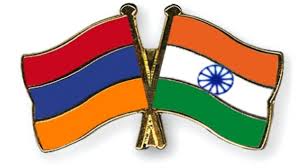In the intricate web of historical ties that crisscross the Eurasian landmass, the relationship between India and the Caucasus and Central Asia stands out for its depth and longevity. Over millennia, these regions have been intertwined through robust trade networks, shared religious and cultural influences, and even periods of common rule by dynasties. Today, as global powers vie for dominance in this strategically vital region, India is asserting its presence, shaping the economic and foreign policy landscape that will define the region’s future.
India’s Strategic Moves: Strengthening Presence in Eurasia
India’s recent strategic agreements underscore its commitment to bolstering its economic and political foothold in Eurasia. The landmark 10-year pact with Iran for utilizing the Chabahar Port, coupled with ongoing negotiations for a free trade agreement (FTA) with the Eurasian Economic Union (EAEU), reflect India’s proactive stance in the region.
Transitioning from Security to Economic Cooperation
While security concerns, especially related to Afghanistan and religious extremism, have traditionally dominated India-Central Asia engagements, recent developments signal a shift towards economic cooperation. Notably, India’s participation in military bases such as Farkhor and Gissar in Tajikistan underscores its strategic positioning vis-à-vis China’s expanding influence in Central Asia.
Adapting to Disruptions: Rethinking Trade Routes
The upheavals triggered by global crises, from the COVID-19 pandemic to geopolitical conflicts, have prompted India to reassess its trade and supply chain strategies. Challenges posed by strained relations with neighboring rivals like Pakistan and China have spurred India to explore alternative routes, exemplified by the Chabahar port agreement with Iran.
Armenia: A Key Partner in the Caucasus
India’s engagement with the Caucasus, particularly Armenia, exemplifies its growing regional footprint. Despite facing trade challenges due to border blockades by Turkey and Azerbaijan, Armenia’s diplomatic and economic ties with India have flourished, with bilateral trade witnessing substantial growth, including in defense exports.
Azerbaijan: Balancing Interests in the INSTC
Azerbaijan occupies a pivotal position in India’s regional calculus, serving as a crucial node in the International North-South Transport Corridor (INSTC). While India imports significant quantities of crude oil from Azerbaijan, the completion of the INSTC promises to further enhance connectivity between India, Azerbaijan, and Russia, revitalizing this strategic trade route.
Kazakhstan: Navigating Trade Dynamics
Kazakhstan, a key partner for India in Central Asia, presents both opportunities and challenges. Despite being India’s major uranium supplier, bilateral trade remains modest compared to Kazakhstan’s trade with China. The evolving dynamics of the Middle Corridor, however, may necessitate concerted efforts to leverage the eastern leg of the INSTC for mutual benefit.
India’s historical ties with the Caucasus and Central Asia are evolving in tandem with the region’s shifting geopolitical landscape. From security imperatives to economic partnerships, India’s multifaceted engagement underscores its growing influence and stake in shaping the future of Eurasia.




